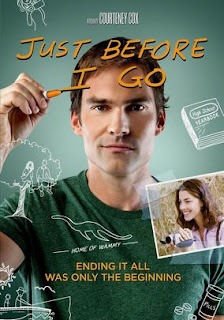Aired on Sky Atlantic in Autumn 2014, Gomorrah focuses on
organised crime within Naples. Based on the film and book of the same name, it follows
Genny Savastano as he attempts to retain the dignity of his family name after
his Father’s (Don Pietro) shock incarceration, and the implications within the
opposing neighbourhoods and factions.
Naturally, comparisons will be made between this and The
Sopranos. Although based in New Jersey, the Italian links are prominent, and as
with all depictions of the Mafia within the media, it was about the fight for
power in the family hierarchy.
Gomorrah has a lot going against it. In a world where The
Sopranos rules the roost in terms of televisual organised crime, Gomorrah is
broadcast in pure Italian, and although the subtitles help, a lot of people
will have been put off the idea of having to pay more attention than they’d
like in order to actually understand what’s happening, let alone attempting to
further piece together all the other aspects of the show. Elements such as
lighting, location, mis en scene and framing of shots are all extremely
important in television programmes of this nature, and that is one disadvantage
from the get go, for any non-Italian speakers.
Perhaps the show’s biggest problem, for me, is that it seems
to treat its first series as one big narrative, rather than simply the
beginning of an extended narrative. Perhaps it’s because there was a danger of
Sky Italia not guaranteeing a second series (that second series is being filmed
as we speak…) and so the writers felt a pressure to end things on a tense but
leading finish. The Sopranos was a HBO show, on premium cable, which meant
there was very little reliance on ratings to ensure that follow-up seasons
happened. As such, although series 1 of Gomorrah delivers on a lot of its early
promises, narratively speaking, there isn’t a great deal of character
development (beyond, arguably Genny’s transformation), and there isn’t a single
character you’d actually root, as opposed to The Sopranos where Tony, the lead,
is the epitome of the anti-hero, a man who kills, sleeps around and treats most
others like human garbage, yet most of the audience still loves him.
The wonderful thing about premium cable in the United States
is that a first season doesn’t need to be a smash hit in order for more seasons
to be ordered. DVD sales account for a lot when it comes to the success and
financial reward of HBO shows, and obviously other elements of the shows are
allowed to be relaxed, owing to its age classifications.
It’s hard to properly talk about Gomorrah without spoiling
its narrative, much like any show, so it’s best that I leave it as a mere
summary. The major consideration for anyone unsure as to the merits herein, is
that every single person in this fictional universe, is cold-blooded. That isn’t
something you could say about its Western counterpart, a show where Tony’s
sidekicks provided some much needed colour and humour. Gomorrah is bleak, and
it presents Naples as a grim, dark, murky place to live, work and operate. It’s
an unapologetically terrifying, and that will appeal to many.



